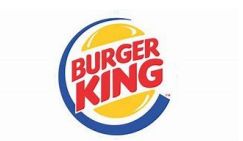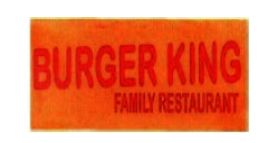- with readers working within the Consumer Industries and Law Firm industries
- within Litigation, Mediation & Arbitration, Family and Matrimonial and Environment topic(s)
- with Inhouse Counsel
INTRODUCTION
Dear Readers,
"We are pleased to present to you the latest edition of our newsletter covering updates on all things Intellectual Property. With intriguing shifts in the ever-evolving landscape of patents, trade marks, and copyrights, the newsletter traces the dynamic world of Intellectual Property and its fascinating intersections with fashion, tech, and media.
From safeguarding the rights in popular trade marks like Burger King, Blinkit and Theobroma to unravelling the otherwise muffled areas like Standard Essential Patents (SEP), this edition tracks a series of noteworthy decisions taken by various Courts across the world. The High Court of Delhi has been particularly vigilant in protecting future works of owners from copyright infringement by issuing the "Dynamic+" Injunction order in the Universal City Studios LLC case. Simultaneously, it has addressed issues of prior use, transborder reputation and nonuse, leading to vacation of interim injunction in the "E! Now" case. Other intriguing snippets include GI tags for products from various states across India and right of authors to receive royalty from radio channels.
We appreciate your readership and sincerely wish you a fruitful reading!"
CASE ANALYSIS
Q2 (APRIL 2023 – JUNE 2023)
THE COURT RESTRAINS BURGER KING FAMILY RESTAURANT FROM USING A SIMILAR MARK TO BURGER KING'S FAMOUS DEVISE MARK.
The High Court of Delhi ("Court") recently adjudicated in a case concerning the rectification petition for cancellation / removal of the device mark, 'BURGER KING'.1 Burger King Co. LLC ("Petitioner") is registered proprietor of its device mark under class 43 since 2010 and has been carrying business as a fast-food chain. The Petitioner, after having earned wide acclaimed popularity worldwide, started operating their business in India in 2014.
In 2011, a mark with the same name Burger King Family Restaurant ("Respondent") applied for registration of the mark, 'BURGER KING FAMILY RESTAURANT' under class 43 ("Impugned Mark"). The Petitioner duly moved an application under Rule 41 of the Trade Marks Rules, 2017 ("Trade Mark Rules") under Form TM-58 to receive information when the application is published. However, to the contrary, the mark was advertised without informing the Petitioner and finally registered in favour of the Respondent.
Petitioner's Mark

Respondent's Mark

In view of the same, the Petitioner filed a suit against the Respondent for infringement in 2014. The Court passed an ex-parte injunction in favour of the Petitioner restraining the Respondent from using the trade mark 'BURGER KING FAMILY RESTAURANT' and further restrained the Respondent from obtaining the franchise of Burger King in the future.
The Petitioner averred that the Impugned Mark is similar to that of the Petitioner's well-known trade mark, 'BURGER KING'. It further noted that the suffix added to the Impugned Mark, i.e., 'Family Restaurant' is descriptive in nature and has been written in a very minute font size. Additionally, not only the name but also the services provided by both the entities were the same as registered under Class 43. Hence being a prior user, the registration should not have been granted in accordance with Section 11 of the Trade Marks Act, 1999. Further, the manner in which the Respondent coined the trade mark by putting a suffix clearly indicates that the Petitioner's name was adopted dishonestly in order to claim benefits through the trade mark earned by the Petitioner.
In view of the abovementioned arguments, the Court noted that the Petitioner has indeed made out a prima facie case in its favour and basis the factual matrix, it does appear that the Respondent dishonestly adopted the Impugned Mark in order to gain profit and cause harm to the reputation and goodwill of the Petitioner as the nature of the mark is such that it is likely to deceive the public by creating confusion in the minds of the people. Therefore, the Court vide order dated April 21, 2023, stayed the operations of the Respondent's mark till the final order. The next hearing is listed on November 20, 2023.
THE BOMBAY HIGH COURT HELD THAT THE INDIAN PERFORMING RIGHT SOCIETY WAS ENTITLED TO RAISE CLAIMS FOR ROYALTIES FROM COMPANIES OWNING RADIO CHANNELS LIKE FM TADKA AND RADIO CITY.
In a recent judgement by the Bombay High Court ("Court"),2 the Indian Performing Right Society ("Plaintiff") entered into licensing agreements with Rajasthan Patrika Private Limited and Music Broadcast Limited ("Defendants"), who are engaged in the business of operating FM Radio Broadcasting Channels.
The Plaintiff filed the suit on grounds that the Copyright Amendment Act, 2012 ("Amendment Act") permitted authors of original work to receive royalties on each occasion that their work is utilized, for instance in this case, each time the recording is played by the Defendant to the public. Whereas, the Defendants claimed that the Amendment Act is clarificatory in nature and does not provide the authors with any new substantive rights.
A Single Judge Bench of the Court held that the authors of the original work or underlying literary and musical works in sound recordings had no right to interfere with the right of broadcasters to communicate with the public. Aggrieved by this decision, the Plaintiff approached the Division Bench of the Court.
Subsequently, the Plaintiff found out about the various applications filed by radio broadcasters before Intellectual Property Appellate Board ("IPAB") and sought an intervention in the proceedings claiming to be an interested party. The IPAB passed an order fixing rates of royalties in proceedings for sound recordings as well as literary and musical works and thereby acknowledged the change in law following the Amendment Act. The Defendants filed an appeal claiming that no separate royalty was payable.
In September 2021, after the dissolution of the IPAB, the Defendants filed a case before the Intellectual Property Division ("IPD") of High Court of Delhi seeking revision in the statutory license fee. The Single Judge of the High Court of Delhi held that the Plaintiff would be within its rights to avail remedies available in law if the Defendants were non-compliant with the order passed by the IPAB.
The Plaintiff found out that in the month of September 2021, the Defendants were broadcasting songs belonging to the repertoire of the Plaintiff which was in contravention of Section 31D (5) of the Copyright Act, 1957 ("Copyright Act"). On October 6, 2021, a Single Judge of the IPD Bench of the High Court of Delhi directed the issuance of two public notices for underlying literary and musical works and for sound recordings. Considering this, the present suit was filed in 2022, where the Plaintiff sought an interim relief against the actions of the Defendants.
In the present suit, the Court granted an interim injunction and restrained the Defendant and anyone on their behalf from either engaging by themselves or authorizing, the public performance/communication to the public, of the Applicant's repertoire of literary and musical works, in any form or manner without paying royalties in consonance with Section 31D (5) of the Copyright Act, 1957.
BLINKHIT V. BLINKIT: KARNATAKA HIGH COURT SETS ASIDE INTERIM INJUNCTION ORDER AGAINST BLINKIT CITING NON-USE OF REGISTERED TRADE MARK BY BLINKHIT
On April 17, 2023, the Karnataka High Court ("Court") set aside an interim injunction order of the trial court, temporarily restraining the use of the trade mark 'Blinkit' by a famous online groceries delivery platform Blink Commerce Private Limited (Previously known as Grofers India Private Limited) ("Appellant"). The order was passed for alleged violation of the rights of a software services firm Blinkhit Private Limited ("Respondent"). The Respondent claimed to have registered its trade marks 'BLINKHIT' and 'iBLINKHIT' since 2016.
A Single Judge Bench of Justice S.R. Krishna Kumar observed that the foremost ground on which the trial court has granted temporary injunction ("Impugned order") is that the Respondent had obtained the registered trade mark much prior to the Appellant starting the use of the trade mark "BLINKIT" for its business. However, it is pertinent to point out that the profit and loss account statement and the balance sheet of the Respondent clearly indicated that no business was being carried out and no income was being generated by the Respondent under the trade marks 'BLINKHIT' and 'iBLINKHIT'
Furthermore, the nature of services allegedly carried out by the Respondent was completely different from the nature of business being carried on by the Appellant consequently, the Court stated "mere obtaining registration of trade marks by the respondent-plaintiff to carry on business/service/activity which was completely different from the appellant-plaintiff cannot be made the basis to come to the conclusion that the respondent had made out a prima facie case for grant of temporary injunction. Viewed from this angle also, the impugned order passed by the trial court deserves to be set aside."
Hence, it set aside the Impugned Order and directed the trial court to dispose of the suit as expeditiously as possible, preferably within one year from the date of receipt of a copy of the order passed by the Court.
Click here to continue reading . . .
Footnotes
1. Burger King Co. LLC v. Virendra Kumar Gupta, 2023 SCC OnLine Del 2292.
2. Indian Performing Right Society Limited v. Rajasthan Patrika Pvt. Ltd., 2023 SCC OnLine Bom 944.
The content of this article is intended to provide a general guide to the subject matter. Specialist advice should be sought about your specific circumstances.







